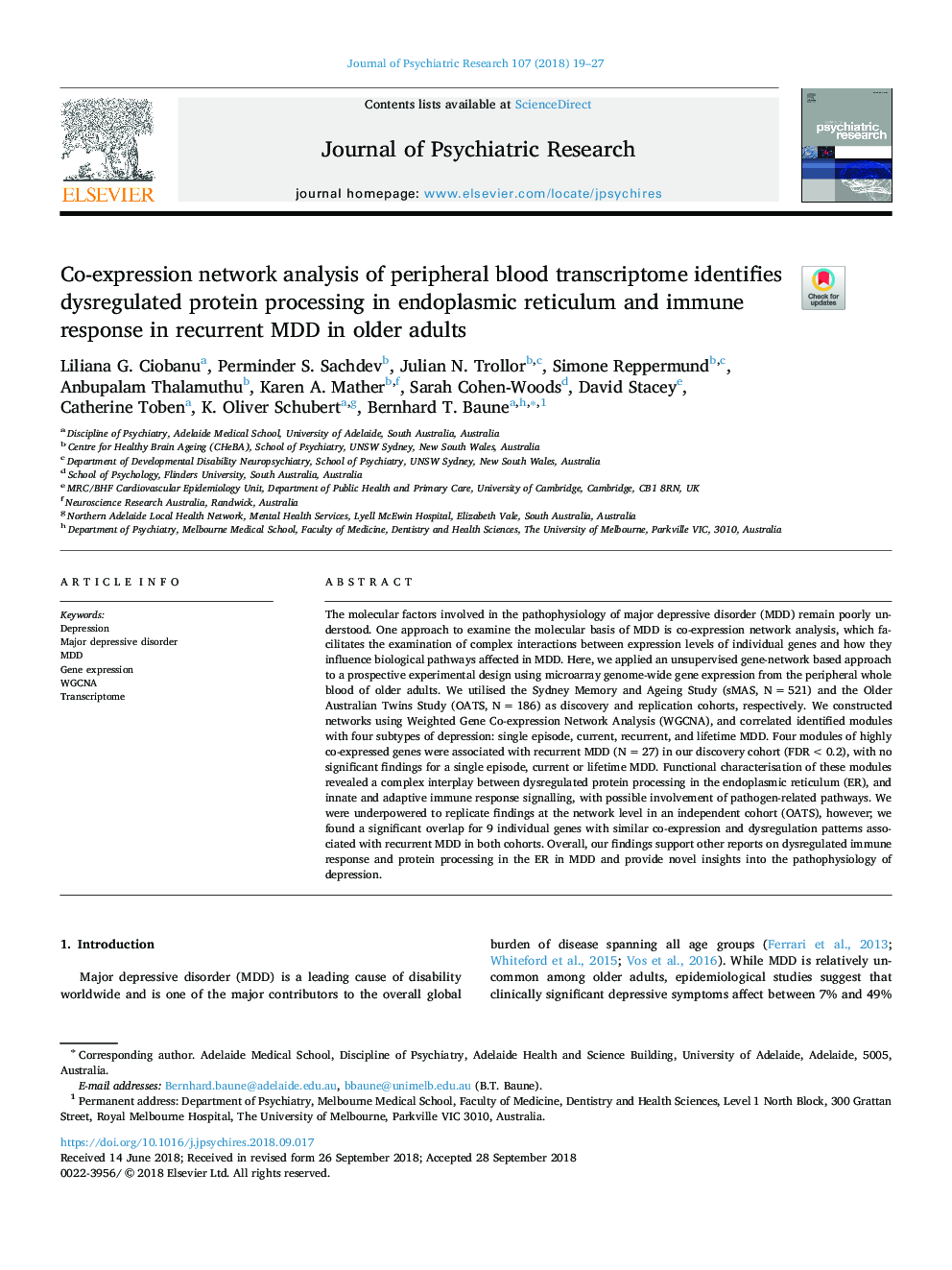| Article ID | Journal | Published Year | Pages | File Type |
|---|---|---|---|---|
| 11009935 | Journal of Psychiatric Research | 2018 | 9 Pages |
Abstract
The molecular factors involved in the pathophysiology of major depressive disorder (MDD) remain poorly understood. One approach to examine the molecular basis of MDD is co-expression network analysis, which facilitates the examination of complex interactions between expression levels of individual genes and how they influence biological pathways affected in MDD. Here, we applied an unsupervised gene-network based approach to a prospective experimental design using microarray genome-wide gene expression from the peripheral whole blood of older adults. We utilised the Sydney Memory and Ageing Study (sMAS, Nâ¯=â¯521) and the Older Australian Twins Study (OATS, Nâ¯=â¯186) as discovery and replication cohorts, respectively. We constructed networks using Weighted Gene Co-expression Network Analysis (WGCNA), and correlated identified modules with four subtypes of depression: single episode, current, recurrent, and lifetime MDD. Four modules of highly co-expressed genes were associated with recurrent MDD (Nâ¯=â¯27) in our discovery cohort (FDR<0.2), with no significant findings for a single episode, current or lifetime MDD. Functional characterisation of these modules revealed a complex interplay between dysregulated protein processing in the endoplasmic reticulum (ER), and innate and adaptive immune response signalling, with possible involvement of pathogen-related pathways. We were underpowered to replicate findings at the network level in an independent cohort (OATS), however; we found a significant overlap for 9 individual genes with similar co-expression and dysregulation patterns associated with recurrent MDD in both cohorts. Overall, our findings support other reports on dysregulated immune response and protein processing in the ER in MDD and provide novel insights into the pathophysiology of depression.
Related Topics
Life Sciences
Neuroscience
Biological Psychiatry
Authors
Liliana G. Ciobanu, Perminder S. Sachdev, Julian N. Trollor, Simone Reppermund, Anbupalam Thalamuthu, Karen A. Mather, Sarah Cohen-Woods, David Stacey, Catherine Toben, K. Oliver Schubert, Bernhard T. Baune,
